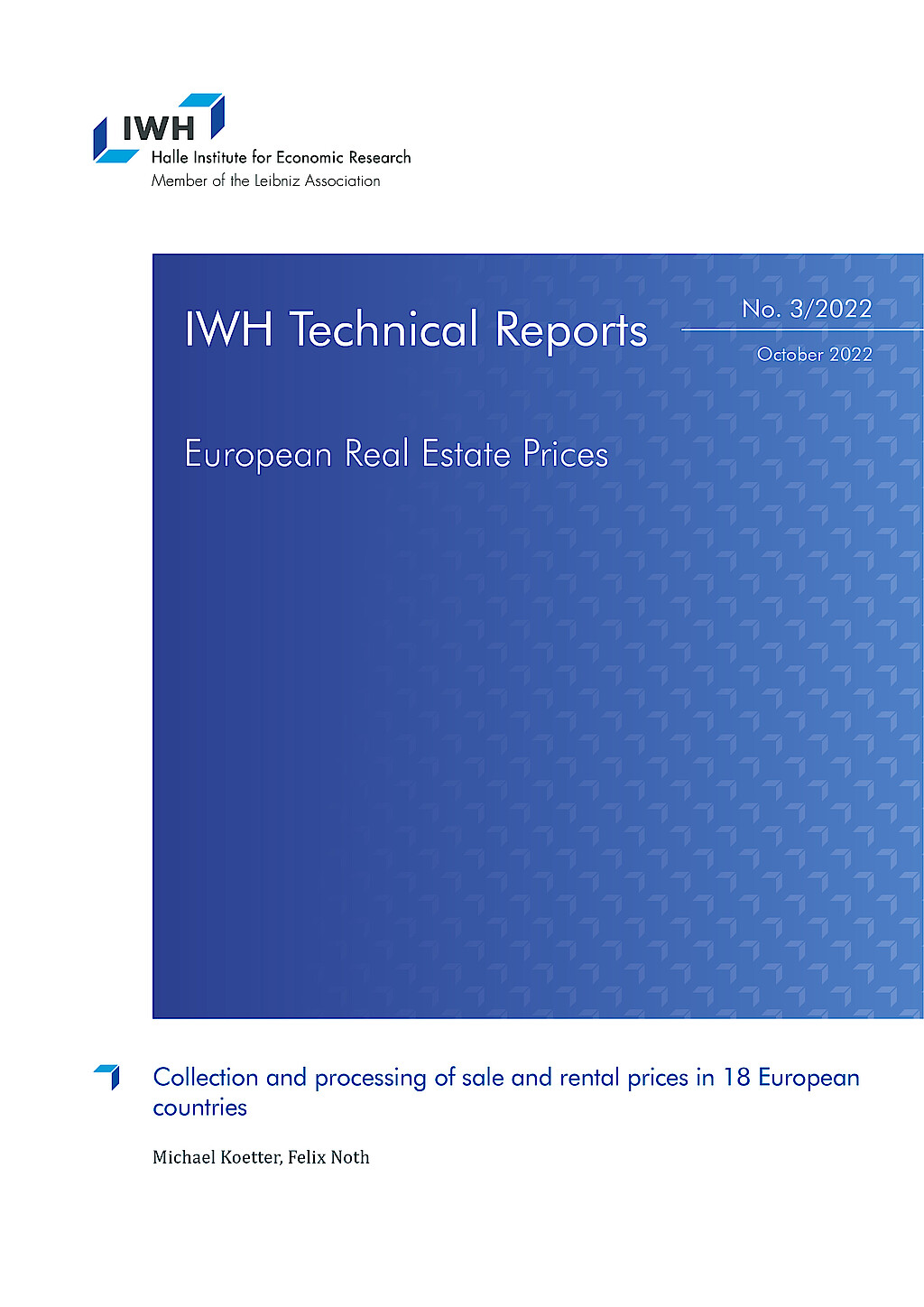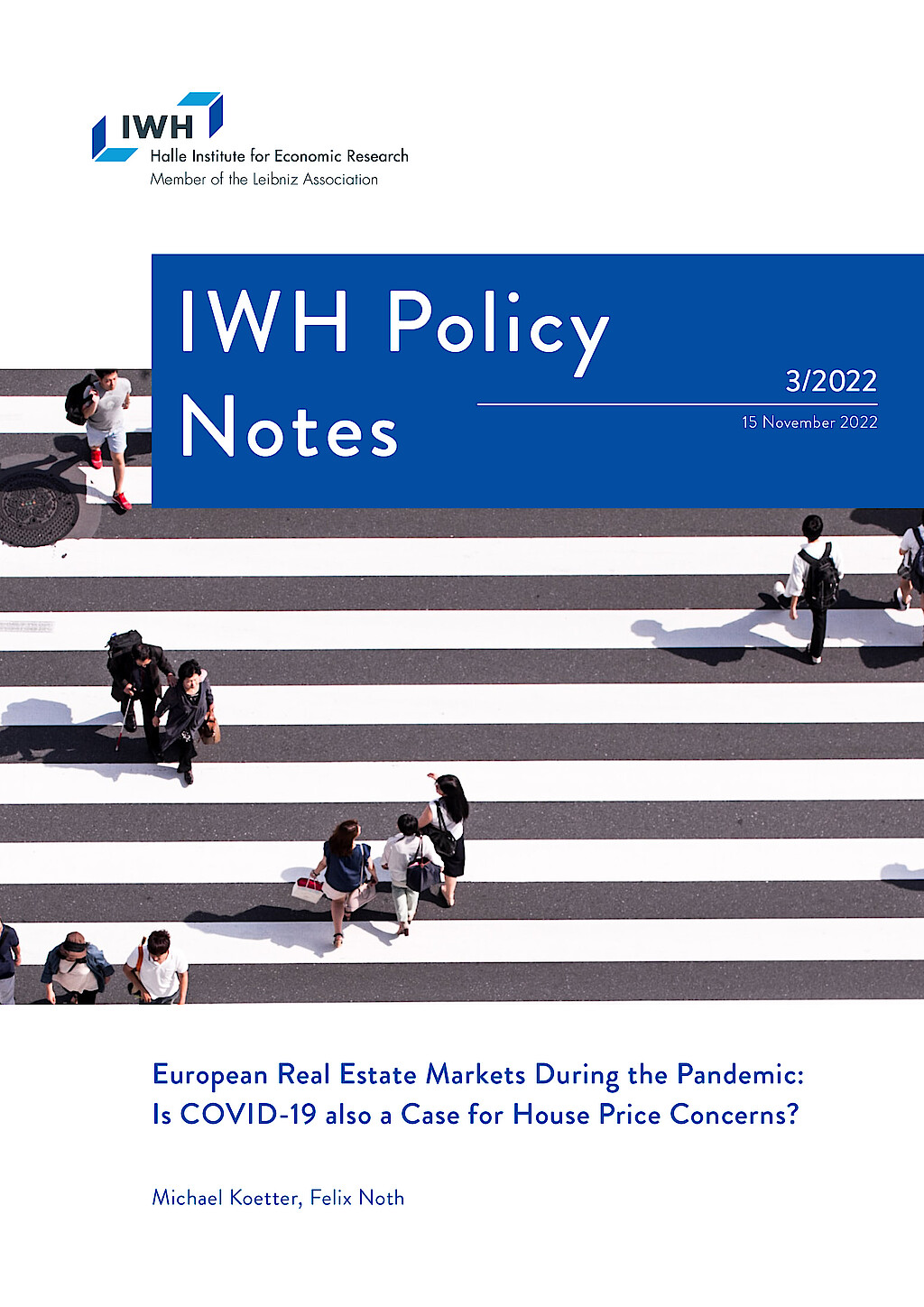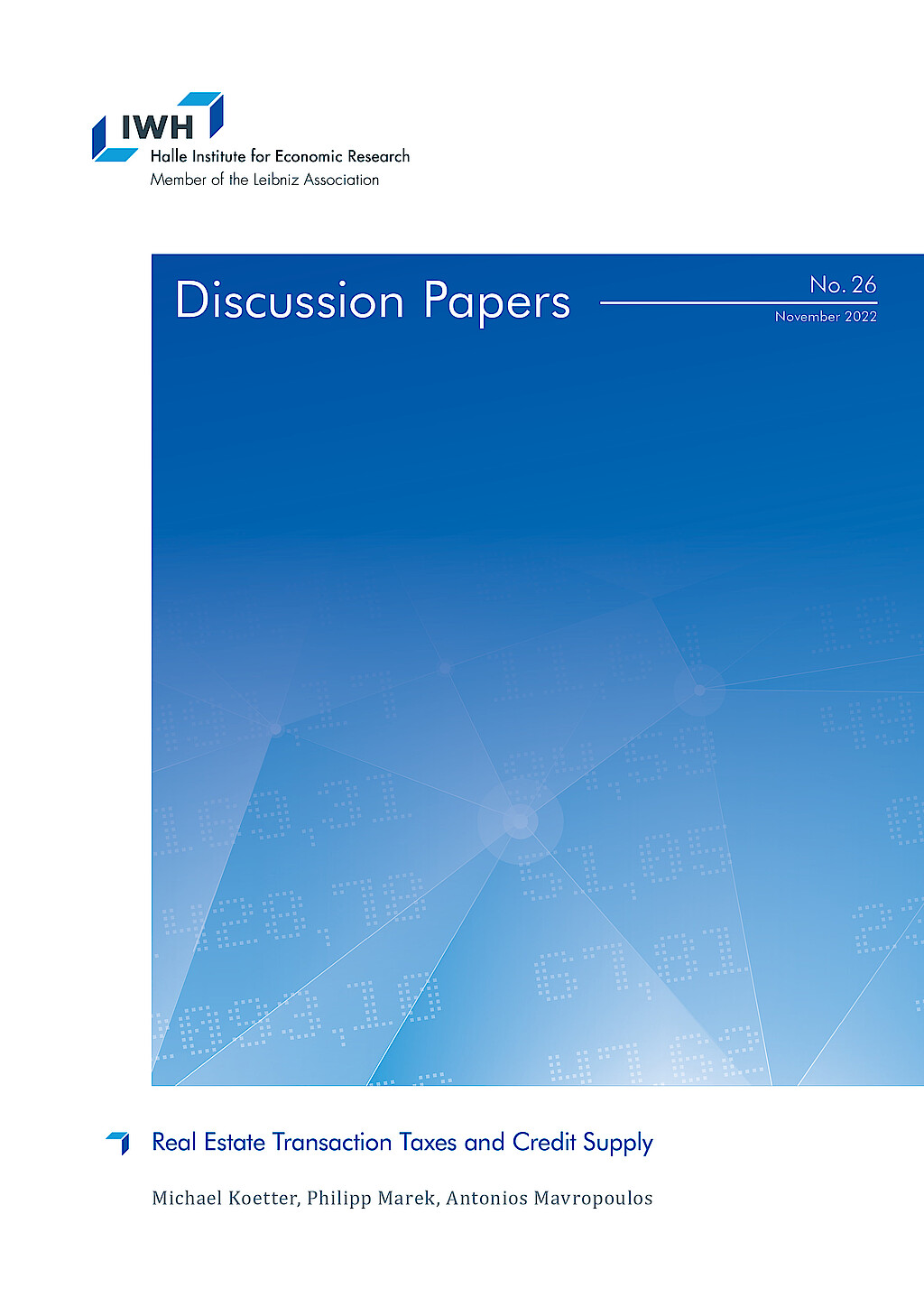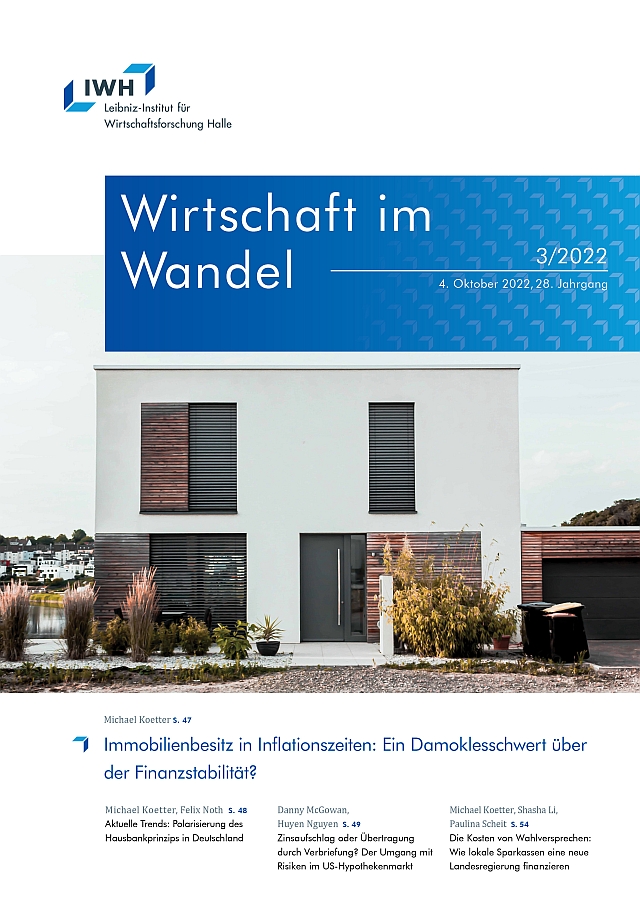IWH European Real Estate Index
The IWH European Real Estate Database is a new data set that illustrates the developments in the real estate market across Europe. The database includes monthly ask prices for sales and rentals for 18 European countries between 2018 and 2021. For 17 countries, we employ web-scraping techniques to gather the data. The data for Germany is from a data project by RWI Essen, please refer to doi.org/10.7807/immo:redx:v3. We compile the monthly data about average and median prices per square meters on the NUTS-3 level as well as the number of listings per month. We provide detailed information on building and structure of the data set in the IWH Technical Report 3/2022.
DOI: 10.18717/erei1
Data and Methods

European Real Estate Prices
in: IWH Technical Reports, No. 3, 2022
Abstract
Real estate markets are pivotal to financial stability given their dual role as the underlying asset of crucial financial products in financial systems, such as mortgage loans and asset-backed securities, and the primary source of household wealth alike. As such, they also play traditionally a crucial role for the transmission of monetary policy. Imbalances and sudden corrections in real estate markets have been the root cause of many financial crises over the last decades. But whereas some national, often survey-based indicators of real estate prices are provided by central banks and statistical offices, a comprehensive collection of purchase prices, rents, and proxies for the liquidity of European real estate markets is lacking. The IWH European Real Estate Index (EREI) seeks to fill this void for residential property. This technical report describes the gathering and processing of sale and rental prices for properties in 18 European countries. We provide the general scrapeing step in the section before describing country-specific details for each country in separated sub-sections.
Data Access
The IWH provides external researchers with this data for non-commercial research purposes only. We grant access upon application. The data are available in Stata format and can be used via a download link.
Please complete the application form with your personal data and a detailed research proposal, which documents your research interest. Based on this information we will conclude a user contract. Please note our terms of use.
For further questions please contact: fdz@iwh-halle.de.
Publications

European Real Estate Prices
in: IWH Technical Reports, No. 3, 2022
Abstract
Real estate markets are pivotal to financial stability given their dual role as the underlying asset of crucial financial products in financial systems, such as mortgage loans and asset-backed securities, and the primary source of household wealth alike. As such, they also play traditionally a crucial role for the transmission of monetary policy. Imbalances and sudden corrections in real estate markets have been the root cause of many financial crises over the last decades. But whereas some national, often survey-based indicators of real estate prices are provided by central banks and statistical offices, a comprehensive collection of purchase prices, rents, and proxies for the liquidity of European real estate markets is lacking. The IWH European Real Estate Index (EREI) seeks to fill this void for residential property. This technical report describes the gathering and processing of sale and rental prices for properties in 18 European countries. We provide the general scrapeing step in the section before describing country-specific details for each country in separated sub-sections.

European Real Estate Markets During the Pandemic: Is COVID-19 also a Case for House Price Concerns?
in: IWH Policy Notes, No. 3, 2022
Abstract
We use a new database on European real estate purchase and rental prices – the IWH European Real Estate Index – to document the relationship between staggered COVID-19 dynamics and real estate prices in 14 EU countries between January 2020 and December 2021. For most countries, we find no statistically significant response of monthly purchase and rental prices due to an increase of regional COVID-19 cases. For the UK we find that more COVID-19 cases depressed both purchase and rental prices significantly, but the economic magnitude of effects was mild during this sample period. In contrast, rents in Italy increased in response to hiking COVID-19 cases, illustrating the importance to consider heterogeneous crisis patterns across the EU when designing policies. Overall, COVID-19 dynamics did not affect real estate values significantly during the pandemic, thereby mitigating potential financial stability concerns via a mortgage lending channel at the time.

Real Estate Transaction Taxes and Credit Supply
in: IWH Discussion Papers, No. 26, 2022
Abstract
We exploit staggered real estate transaction tax (RETT) hikes across German states to identify the effect of house price changes on mortgage credit supply. Based on approximately 33 million real estate online listings, we construct a quarterly hedonic house price index (HPI) between 2008:q1 and 2017:q4, which we instrument with state-specific RETT changes to isolate the effect on mortgage credit supply by all local German banks. First, a RETT hike by one percentage point reduces HPI by 1.2%. This effect is driven by listings in rural regions. Second, a 1% contraction of HPI induced by an increase in the RETT leads to a 1.4% decline in mortgage lending. This transmission of fiscal policy to mortgage credit supply is effective across almost the entire bank capitalization distribution.

Kommentar: Immobilienbesitz in Inflationszeiten: Ein Damoklesschwert über der Finanzstabilität?
in: Wirtschaft im Wandel, No. 3, 2022
Abstract
Zu Beginn meines Studiums bot sich mir überall das gleiche Schauspiel: lange Warteschlangen anderer „Frischlinge“ vor dem neu renovierten WG-Zimmer samt modernstem 56k-Modem, fußläufig zu Uni und Lieblings-Café gelegen, mit happiger Miete zwar, aber irgendwie noch im finanziellen Lösungsraum. Eifrig bereitete ich tolle Argumente vor, warum gerade ich der optimale WG-Zuwachs sei, bevor ich mich einreihte. Schade, dass es dann meist jemand anderes wurde, aber nur kein Neid! Schade aber auch, dass die Suche nach einem Dach über dem Kopf für viele Menschen auch später frustrierend bleibt. Ein bezahlbares Zuhause zu suchen bleibt vielerorts ein von der Spaßsteuer befreites Unterfangen, ob nun für Berufseinsteiger oder die vierköpfige Familie, ob nun in Leipzig oder Köln.

Aktuelle Trends: Immobilienpreise in Deutschland steigen seit Pandemiebeginn im EU-Vergleich am stärksten
in: Wirtschaft im Wandel, No. 1, 2022
Abstract
Seit dem Beginn der Pandemie sind die Angebotspreise für privat genutzte Immobilien EU-weit um ein Viertel, in Deutschland bis März 2021 um 45% gestiegen. Die Preisdynamik ist auch außerhalb der Ballungszentren beachtlich.
Your Contact

Vice President Department Head
If you have any further questions please contact me.
+49 345 7753-727 Request per E-Mail
Vice Department Head Research Group Head
If you have any further questions please contact me.
+49 345 7753-702 Request per E-Mail


